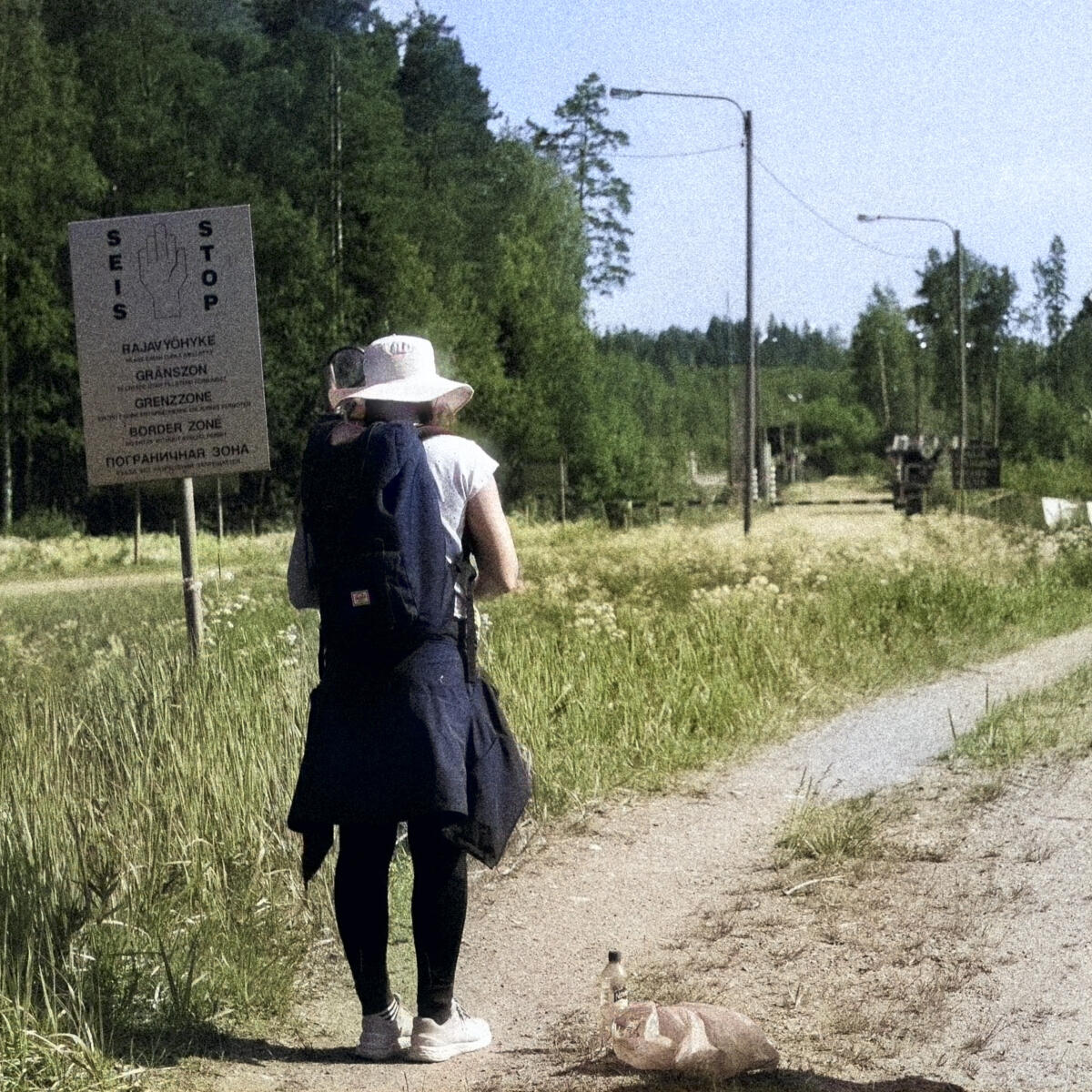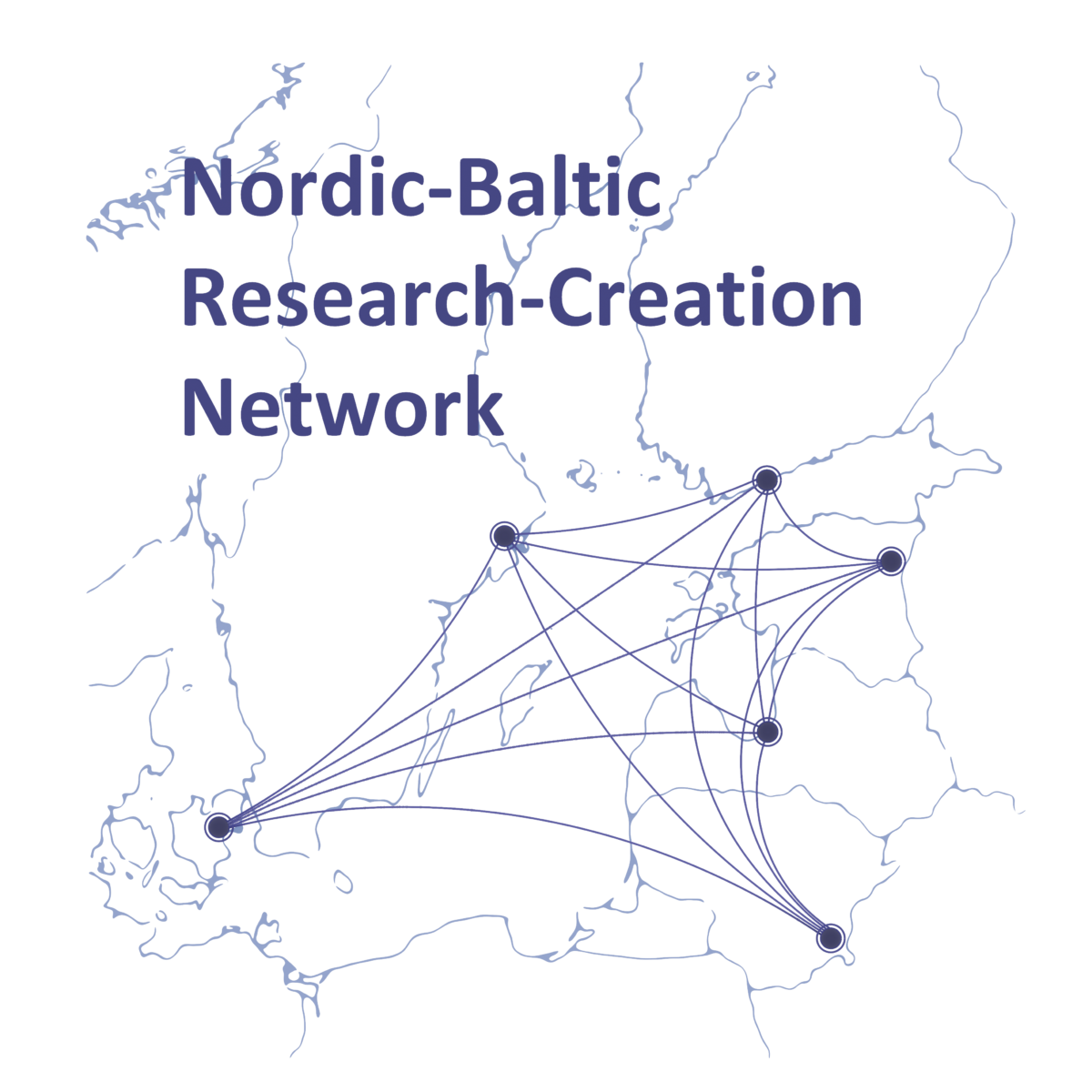Research Retreat to the Russian Border
In our Research Retreat to the Russian border, we shall study this tensional space as a multi-sensorial and multi-layered phenomenon. By retreating to the frontier, we seek to study the border as a site of encounters between the actual and virtual, discursive and non-human, memories and utopia. The event is part of the sixth Research Pavilion.

Fleeing as a centrifugal practice
In her essay “Attempt to Think the Plebeian — Exodus and Constituting as Critique” (2008), political theorist Isabell Lorey proposes that critique could be understood as a productive practice of fleeing. By using the example of the plebeians who fled the rule of the patricians, she introduces fleeing as a centrifugal practice that attests the boundaries of power. By revealing the limit of power, fleeing exposes the horizon of power, and this method, according to her, can also be assigned to critique. Our research event literally retreats to the border by traveling by train and by walking.
We shall follow the remains of a ruined railway, which once connected the two villages of Parikkala (Finland) and Elisenvaara (Russia). The site of the railway was disconnected in the Peace Treaty between Finland and the Soviet Union in 1944, and ever since, it has been a visible remainder of the lost connection. Nowadays, the site of the railway is covered by trees, shrubs, and mosses, which remind us of the order that is indifferent to the disciplinary practices of the nation-state border. The bodily experience of the retreat will test our knowledge by exposing its situatedness.
Convener
-
Jaakko Ruuska
- Visiting researcher, Artistic research Academy of Fine Arts, Academy of Fine Arts
- jaakko.ruuska@uniarts.fi
The event is produced in cooperation with Nordic-Baltic research-creation network.

Fleeing as a centrifugal practice
In her essay “Attempt to Think the Plebeian — Exodus and Constituting as Critique” (2008), political theorist Isabell Lorey proposes that critique could be understood as a productive practice of fleeing. By using the example of the plebeians who fled the rule of the patricians, she introduces fleeing as a centrifugal practice that attests the boundaries of power. By revealing the limit of power, fleeing exposes the horizon of power, and this method, according to her, can also be assigned to critique. Our research event literally retreats to the border by traveling by train and by walking.
We shall follow the remains of a ruined railway, which once connected the two villages of Parikkala (Finland) and Elisenvaara (Russia). The site of the railway was disconnected in the Peace Treaty between Finland and the Soviet Union in 1944, and ever since, it has been a visible remainder of the lost connection. Nowadays, the site of the railway is covered by trees, shrubs, and mosses, which remind us of the order that is indifferent to the disciplinary practices of the nation-state border. The bodily experience of the retreat will test our knowledge by exposing its situatedness.
Convener
-
Jaakko Ruuska
- Visiting researcher, Artistic research Academy of Fine Arts, Academy of Fine Arts
- jaakko.ruuska@uniarts.fi
The event is produced in cooperation with Nordic-Baltic research-creation network.
